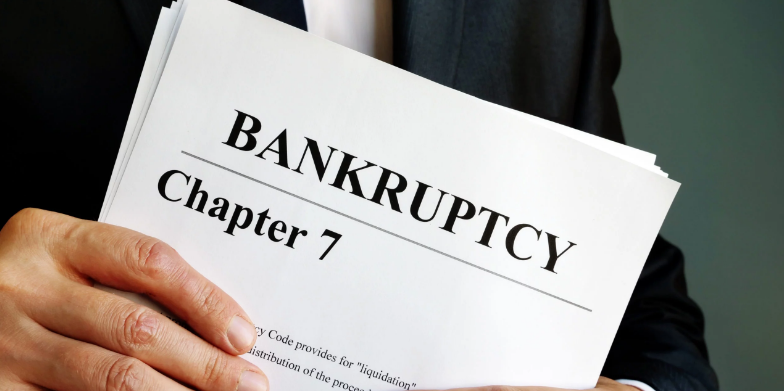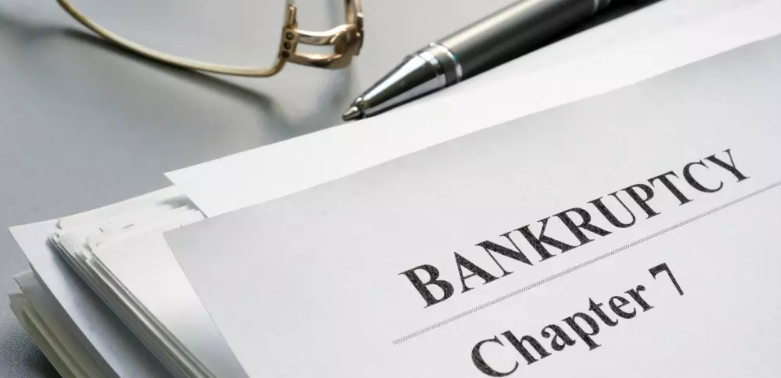How to Get Rid of Chapter 7 Bankruptcy?
May 26, 2023 By Triston Martin
If you file for Chapter 7 bankruptcy(Opens Overlay), the federal government will take possession of your assets and sell them to pay off your debts. These assets may include a car, real estate, or even jewelry of significant value. If you pay as much as you can, the court will forgive the rest of your debt. You may stop worrying about repaying them now. However, Chapter 7 bankruptcy may not apply to every sort of debt. Most school loans, alimony, child support, and tax bills are not dischargeable in bankruptcy.
After ten years have passed since you filed for Chapter 7 bankruptcy, the information will be automatically deleted from your credit report.
Early Removal of a Bankruptcy From Your Credit Report

Bankruptcy will be reflected in your credit report. Bankruptcies, whether Chapter 7 or Chapter 13, remain on credit reports for 10 and 7 years, respectively. If you wait this long, the default should be removed from your credit report without your having to do anything.
The law mandates that only accurate information be reported by creditors to credit reporting agencies. Thanks to this mandate, consumers are safeguarded from potentially detrimental errors in their credit reports. However, the same protection is in place to ensure that accurate data is not accidentally deleted. Therefore, if a bankruptcy filing is correct and appears on your credit record, it will be there and cannot be deleted.
However, you can contest the bankruptcy entry if it contains inaccurate information or was submitted incorrectly. As guaranteed by the Fair Credit Reporting Act (FCRA), you can challenge errors and inaccuracies on your credit report. If an entry is challenged and the reporting agency cannot defend it, the entry must be removed.
Bankruptcy Under Chapter 13
Chapter 13 bankruptcy, also known as a wage earner's plan, takes into account regular income. Those who have a regular source of income can apply for Chapter 13 bankruptcy and develop a plan to repay their debts over time. Seven years from the day you filed for Chapter 13 bankruptcy, the bankruptcy will be deleted automatically from your credit record. Due to the necessity of at least partial debt repayment, the turnaround time is reduced.
The Bankruptcy Accounts
Chapter 7 and Chapter 13 bankruptcies appear on credit reports for seven years. A person who declares bankruptcy usually has severe financial difficulties. Before declaring bankruptcy, accounts are typically severely past due.
If a debtor's account were past due when the bankruptcy was filed, it would be erased seven years after the initial delinquency date (when the version initially fell behind and was never brought current). The date of initial delinquency and the length of time the account remains on a credit record are unaffected by a bankruptcy filing.
Fixing Credit Report Mistakes

Errors in your bankruptcy credit report should be disputed without delay. You should contact the three major bureaus for more accurate information on any of your credit reports. You can get in touch with them via email or regular mail. Because the internet forms often require you to consent to terms that limit you from suing, it is advisable to do this by mail. A paper trail is also left if the disagreement is mailed. The Federal Trade Commission (FTC) and the Consumer Financial Protection Bureau (CFPB) both provide sample letters that can be used as guides for composing your own.
Include your full name, credit report number, DOB, and address in your letter. Date the letter so you know when you can expect to hear back. Your SSN and driver's license number are optional details that can be provided.
What Happens to Your Credit Score When You Declare Bankruptcy?
A bankruptcy will often harm credit scores, though the precise degree of damage may vary. Credit scores are helpful since they inform lenders of the possibility that they will be repaid. Some debts may be discharged or reimbursed under new terms if bankruptcy is filed.
The bankruptcy filing may be considered by creditors and other organizations regardless of the credit score. If you have just filed for bankruptcy, you may need help to get new credit accounts. The default can affect their ability to rent an apartment, set up new utility accounts, look for a job, or get a better insurance rate.
The good news is that bankruptcy has diminishing effects over time, and credit can be rebuilt even before the default is removed from records.
Credit Report Bankruptcy in a Nutshell
Although bankruptcy is always the last choice, it may be necessary for some people. Remember that bankruptcy will remain on your credit report for seven to ten years after the case has been closed. Credit score improvement is a wondrous thing no matter where you are financial.








